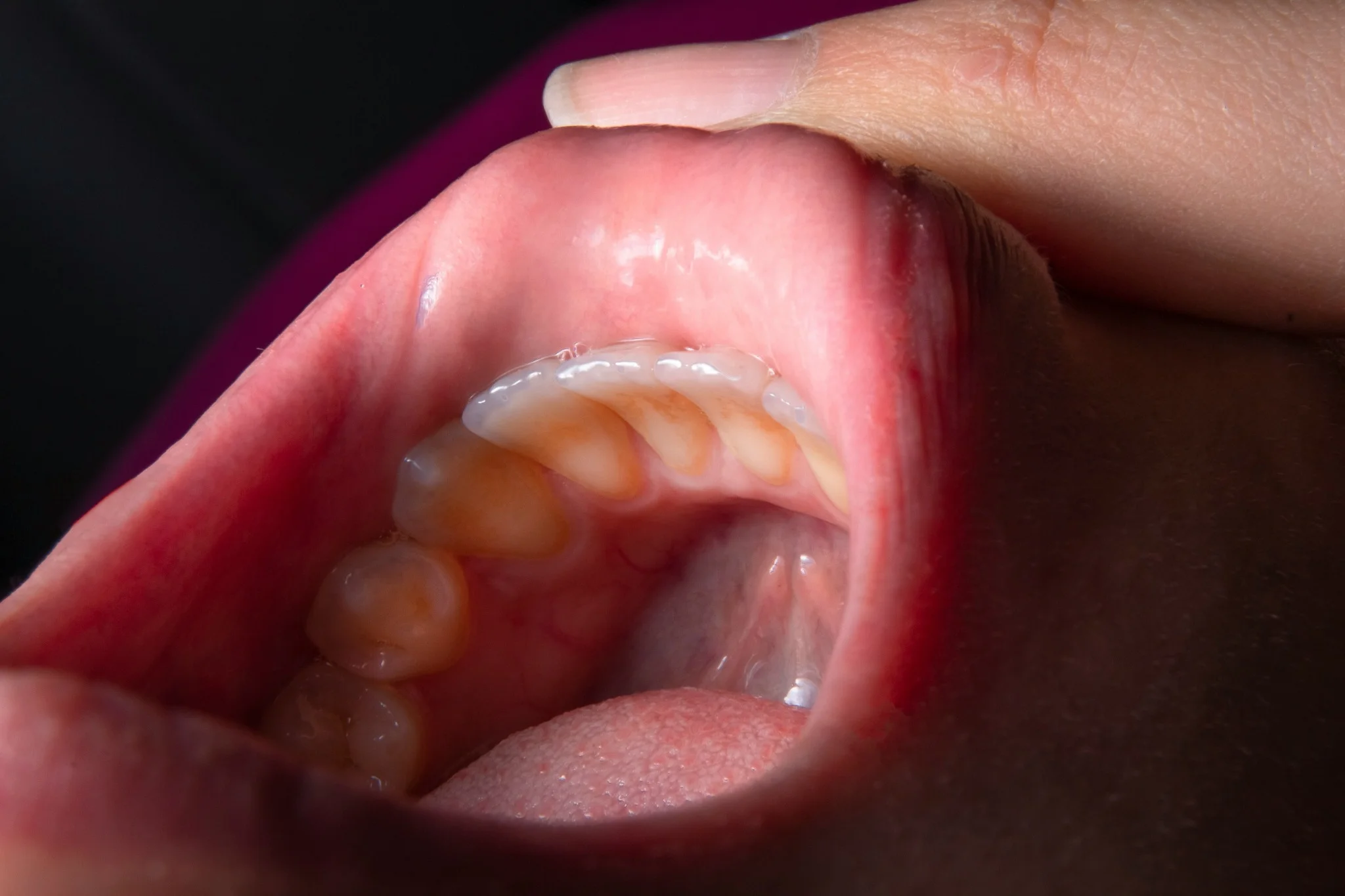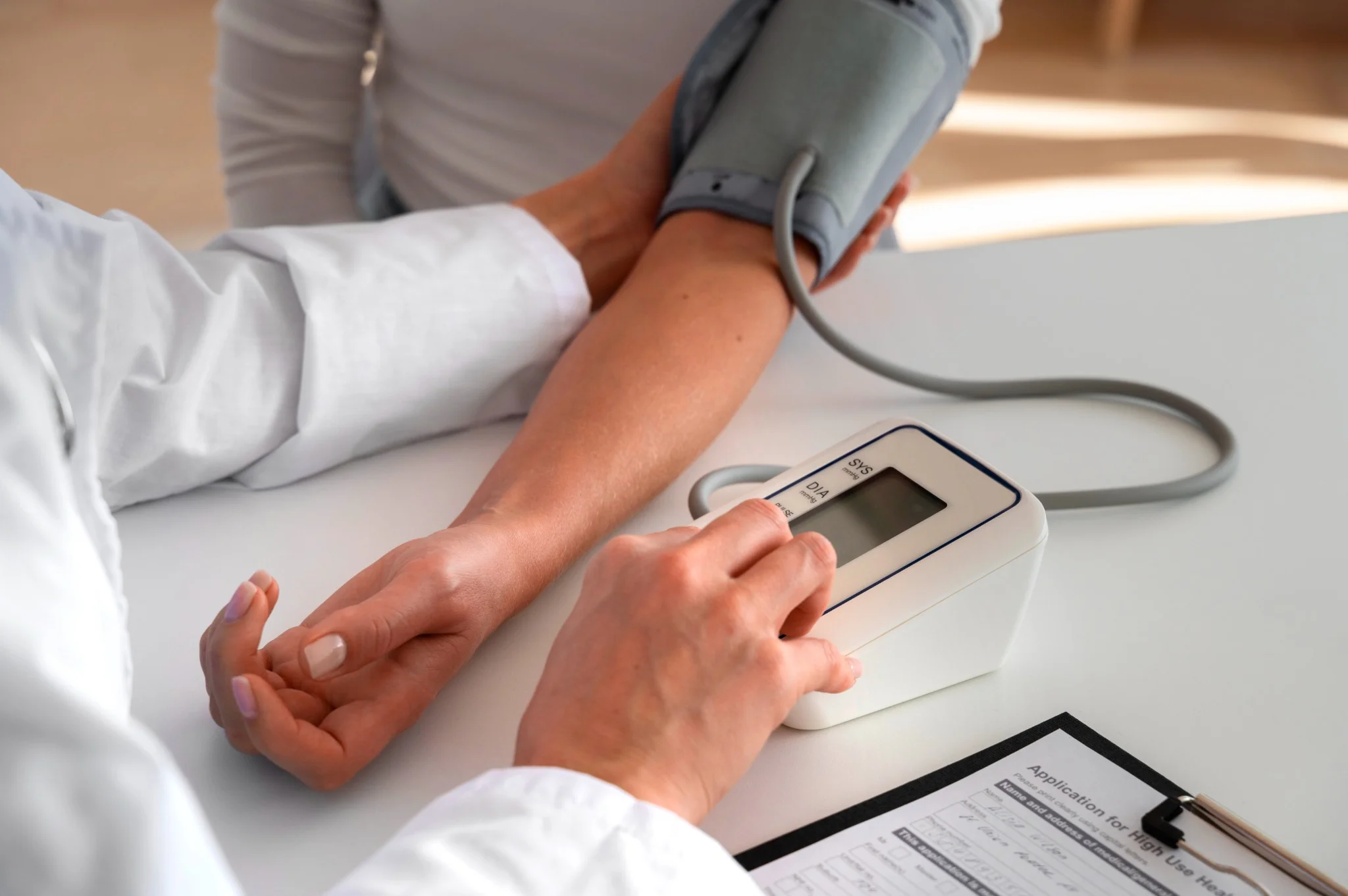Thrombophilia Profile Test in Dabwali
Also known as: Thrombophilia Profile-Maxi
Thrombophilia Profile-Maxi in Dabwali Details in Brief
| Also Known As | Thrombophilia Profile - Mini, Blood Clotting Disorder Test, Hypercoagulation Panel |
|---|---|
| Purpose | Screens for inherited and acquired thrombophilia aid in assessing the risk of abnormal blood clotting and support the prevention and management of thrombotic disorders. |
| Preparation | Clinical history is required. |
| Fasting | Not Required |
| Reporting Time | Next Day: 5:00 PM |
| Cost | 16,500 |
What Is a Thrombophilia Profile Test in Dabwali?
A thrombophilia profile test is a comprehensive blood test that examines your body's clotting system. This specialised test helps identify health conditions where your blood has an increased tendency to form dangerous clots in your veins or arteries. It helps detect inherited or acquired disorders that make you more prone to abnormal blood clotting, supporting early intervention and personalised treatment plans.
What Does a Thrombophilia Profile Test Measure in Dabwali?
This comprehensive test evaluates multiple aspects of your blood's clotting system to identify potential health risks:
• Natural anticoagulant proteins: Measure Protein C, Protein S, and Antithrombin III levels that normally prevent excessive clotting.
• Genetic clotting resistance: Checks for Factor V Leiden mutations and activated protein C resistance.
• Autoimmune antibodies: Detects lupus anticoagulants and anticardiolipin antibodies that can increase clot risk.
• Clotting pathway function: Evaluates how well your body's natural clot prevention mechanisms work.
• Thrombotic risk factors: Identify both inherited and acquired conditions that may lead to dangerous blood clots.
Who Should Consider a Thrombophilia Profile Test?
This specialised test is recommended for specific individuals with particular risk factors or medical histories:
• People who have experienced unexplained blood clots, especially under age 50
• Individuals with recurrent episodes of deep vein thrombosis or pulmonary embolism
• Those with blood clots in unusual locations like the brain, liver, or intestinal veins
• People with a strong family history of clotting disorders or thrombotic events
• Women with recurrent pregnancy loss or unexplained miscarriages
• Patients requiring guidance for anticoagulation therapy duration and type
What Is the Purpose of a Thrombophilia Profile Test?
This test serves crucial clinical purposes in understanding and managing your clotting risk. It helps doctors determine the underlying cause of abnormal blood clotting and assess your risk for future thrombotic events.
The results guide important treatment decisions, including the most appropriate type and duration of blood-thinning therapy. Additionally, it provides valuable information for family counselling and risk assessment for relatives who may carry similar genetic predispositions.
Thrombophilia Profile Test Booking & Reports – Metropolis Healthcare India
How to Book a Thrombophilia Profile Test with Metropolis Healthcare in Dabwali?
- Simple Online Booking
Booking can be done through the Metropolis Healthcare App or website. Select the 'Thrombophilia Profile Test' in Dabwali, choose a convenient time slot, and provide your address for a blood test at home. You can also visit the nearest Metropolis Lab if you prefer to give the sample directly at the lab. - Safe Home Sample Collection
Our trained phlebotomists ensure the timely collection of your sample while strictly following all safety and hygiene protocols. - Sample Tracking Updates
Stay informed at every step. From collection to testing, you can track your sample directly through the Metropolis Healthcare website. - Accurate Laboratory Testing
Your sample is processed at our NABL & CAP accredited laboratories, where expert technicians ensure accurate results. - Quick & Easy Reports
Receive your test reports promptly via email, WhatsApp, or by downloading them directly from the Metropolis Healthcare website or app.
How Long Does It Take to Get the Thrombophilia Profile Test Report from Metropolis Healthcare in Dabwali?
Reports are usually available by the next day at 5:00 PM once the sample reaches the pathology lab.
Note: Reporting time may vary depending on your location.
Where Can I View or Collect My Thrombophilia Profile Test Results?
Test results from Metropolis Healthcare can be accessed through multiple convenient channels. You can log in to the Metropolis website using your credentials or use the Metropolis Healthcare App to view and download your reports. Additionally, test reports are sent via email or WhatsApp, and you also have the option to collect a physical copy directly from the lab.
Is Home Sample Collection Available for the Thrombophilia Profile Test in Dabwali Near Me?
Yes, home blood sample collection is available for the thrombophilia profile test in Dabwali through Metropolis Healthcare. Our trained phlebotomists visit your home at your preferred time, following strict hygiene protocols during sample collection. This service eliminates travel time and waiting, making it easier for you to prioritise your health.
Guide to Interpreting Thrombophilia Profile Test Results
What Your Thrombophilia Profile Test Results May Indicate
The following table guides understanding of your test results and what different values might suggest:
|
Parameters |
Normal Range |
Low Values May Indicate |
High Values May Indicate |
|
Protein C Activity Functional |
70-130% |
Increased risk of venous thromboembolism, inherited protein C deficiency |
Generally not clinically significant |
|
Protein S Activity Functional |
77-143% |
Increased clotting risk, deficiency syndrome |
Generally not clinically significant |
|
Anti-Thrombin III Activity Functional |
80-120% |
Increased risk of venous and arterial thrombosis |
May indicate acute hepatitis, a kidney transplant, or a vitamin K deficiency |
|
APCR (Activated Protein C Resistance) |
<OR = 120 sec suggests resistance |
Normal function |
Possible Factor V Leiden mutation |
|
Cardiolipin IgM Antibody |
Negative: < 15.0 MPL U/mL Weak Positive: 15-40 MPL U/mL Positive: > 40.0 MPL U/mL |
Not clinically significant |
May indicate antiphospholipid syndrome, increased thrombotic risk |
|
Cardiolipin IgG Antibody |
Negative: < 15 GPL U/mL Positive: >= 40 GPL U/mL Weak Positive: 15-40 GPL U/mL |
Not clinically significant |
May indicate antiphospholipid syndrome, increased thrombotic risk |
What Preparations Are Needed for a Thrombophilia Profile Test?
Specific preparation steps help ensure accurate test results:
• Medication considerations: Inform your doctor about blood thinners (warfarin, heparin), as they can affect results.
• Timing after clot treatment: Wait at least 2-4 weeks after completing treatment for blood clots.
• No specific fasting required: You can eat and drink normally before the test.
• Avoid acute illness: Schedule testing when you're feeling well, not during infections or inflammatory conditions.
• Provide clinical history: Share details about previous clots, family history, and current medications.
Thrombophilia Profile Tests/Packages That You Can Book With Metropolis Healthcare
Metropolis Healthcare offers comprehensive thrombophilia testing options to meet different clinical needs:
|
Test/Package Name |
Purpose/Highlights |
|
Comprehensive panel for broader investigation of common thrombophilia causes |
|
|
Most extensive panel for complex cases requiring detailed analysis of rare clotting disorders |
|
|
Specific testing for antiphospholipid syndrome and autoimmune clotting disorders |
Thrombophilia Profile Test Prices Across Different Cities
The cost of a thrombophilia profile test may vary depending on your location. Here's a table showing the approximate prices in different cities:
|
City |
Price (INR) |
|
₹17,000 to ₹21,000 |
|
|
₹17,000 to ₹21,000 |
|
|
₹17,000 to ₹21,000 |
|
|
₹17,000 to ₹21,000 |
|
|
₹17,000 to ₹21,000 |
|
|
₹17,000 to ₹21,000 |
Thrombophilia Profile-Maxi Price in Dabwali
Metropolis Healthcare is a leading diagnostics centre and pathology lab in India equipped with the latest state-of-the-art technologies that provides the Thrombophilia Profile-Maxi with a clear pricing structure
The price of Thrombophilia Profile-Maxi in Dabwali is ₹ 16,500
We are committed to deliver accurate and quality results from the best labs in India with complete transparency regarding test cost and turnaround time. No matter where you are, we strive to offer patients high-quality service that is affordable and accessible.
Frequently Asked Questions
The thrombophilia profile test price is ₹16,500 at Metropolis Healthcare in Dabwali. The price includes professional sample collection, laboratory analysis, and detailed reporting with clinical interpretation.
A thrombophilia profile test is typically a one-time diagnostic test. If genetic conditions like Factor V Leiden are identified, the results remain unchanged throughout your lifetime. Your doctor may occasionally recommend retesting specific parameters, but the complete profile usually doesn't require regular repetition.
You should get this test only when recommended by your doctor, typically for unexplained blood clots, a family history of clotting disorders, or recurrent pregnancy loss. The ideal timing is several weeks after completing treatment for acute clots, as active clotting and blood thinner medications can interfere with accurate results.
Yes, you can access your test reports through the Metropolis Healthcare website or mobile app using your unique credentials. Reports are also sent via email and WhatsApp for your convenience, ensuring easy access to your health information.
Yes, you can easily book your test online through the Metropolis Healthcare website or app. Choose between home sample collection at your preferred time or visit any nearby Metropolis lab location for convenient sample collection that fits your schedule.
Ratings & Reviews (0)
Why Metropolis?
Metropolis has a team of 200 senior pathologists and over 2000 technicians delivering diagnostic solutions in the areas of routine, semi specialty and super specialty domains like Oncology, Neurology, Gynaecology, Nephrology and many more.
We offer a comprehensive range of 4000+ clinical laboratory tests and profiles, which are used for prediction, early detection, diagnostic screening, confirmation and/or monitoring of the disease.



.png)
















 WhatsApp
WhatsApp
